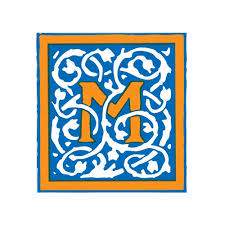The Women's Balcony 2017

Following a balcony collapse at a Jerusalem synagogue, a group of Orthodox women find themselves confronting deeply rooted patriarchal structures. As tensions rise within their community, they must challenge established power dynamics and fight to reclaim their voices and values. The unfolding events reveal the true intentions of a charismatic rabbi, testing the women's friendships and sparking a humorous yet moving struggle for equality and self-determination.
Does The Women's Balcony have end credit scenes?
No!
The Women's Balcony does not have end credit scenes. You can leave when the credits roll.
Meet the Full Cast and Actors of The Women's Balcony
Explore the complete cast of The Women's Balcony, including both lead and supporting actors. Learn who plays each character, discover their past roles and achievements, and find out what makes this ensemble cast stand out in the world of film and television.
No actors found
External Links and Streaming Options
Discover where to watch The Women's Balcony online, including streaming platforms, rental options, and official sources. Compare reviews, ratings, and in-depth movie information across sites like TMDb, Wikipedia, Rotten Tomatoes or Metacritic.
Ratings and Reviews for The Women's Balcony
See how The Women's Balcony is rated across major platforms like IMDb, Metacritic, and TMDb. Compare audience scores and critic reviews to understand where The Women's Balcony stands among top-rated movies in its genre.

74
Metascore
4.2
User Score


96%
TOMATOMETER

76%
User Score

71
%
User Score
Take the Ultimate The Women's Balcony Movie Quiz
Challenge your knowledge of The Women's Balcony with this fun and interactive movie quiz. Test yourself on key plot points, iconic characters, hidden details, and memorable moments to see how well you really know the film.
The Women's Balcony Quiz: Test your knowledge about the intricate dynamics and themes of the movie 'The Women's Balcony'.
What event triggers the chaos in the synagogue?
The appointment of a new rabbi
The building of a new synagogue
The collapse of a section of the synagogue's balcony
A storm that hits Jerusalem
Show hint
Full Plot Summary and Ending Explained for The Women's Balcony
Read the complete plot summary of The Women's Balcony, including all major events, twists, and the full ending explained in detail. Explore key characters, themes, hidden meanings, and everything you need to understand the story from beginning to end.
An orthodox congregation in Jerusalem gathers to celebrate a Bar Mitzvah when disaster strikes—a section of the synagogue’s balcony, where the women are seated, suddenly collapses. This tragic event leaves the rabbi’s wife severely injured and in a coma, leaving the elder rabbi in a state of despair, unable to fulfill his duties. During this difficult time, Zion steps in to care for him, but the congregation struggles to organize the rebuilding efforts due to a lack of leadership and direction.
As the community convenes in a schoolroom for their morning prayers, they find themselves short of a required quorum of ten men, known as a minyan. In an effort to remedy this, they stop a man dressed in Hasidic garb passing by—he turns out to be Rabbi David, a dedicated teacher. Rabbi David brings along some of his students, effortlessly meeting the minyan requirement.
Upon hearing the congregation’s plight, Rabbi David takes the reins to oversee the repairs of the synagogue. However, he chooses not to address the damaged women’s balcony right away, citing a lack of funds as the reason. In an attempt to encourage the men to adhere to stricter religious practices, he instructs them to urge their wives to cover their heads and even suggests gifting them elegant headscarves. Unfortunately, his request is largely met with resistance.
Frustrated by the lack of attention given to their needs, the women of the congregation, led by Etti, Zion’s wife, decide to take matters into their own hands. They raise sufficient funds for the reconstruction of the balcony, depositing the money into the synagogue’s bank account. However, Rabbi David staunchly opposes the reconstruction, arguing that a new Torah scroll must be obtained to replace the one destroyed in the balcony’s collapse before any rebuilding can commence.
Meanwhile, Rabbi David’s assistant is secretly pursuing a romantic relationship with Etti’s niece, complicating matters further. The women resolve to leave their husbands, stating they won’t return until the balcony is completed, and they even stage a protest outside Rabbi David’s school.
The synagogue’s treasurer, who needs to co-sign any construction checks, has been deliberately avoiding the rabbi to dodge pressure. Rabbi David seeks the old rabbi’s advice, attempting to justify his insistence on the new Torah scroll as a requirement under Jewish law. However, the old rabbi, still grappling with the shock of recent events, cannot provide a coherent response.
In a determined act, Rabbi David forges the treasurer’s signature and entrusts the check to his assistant, instructing him to cash it to commission a scribe to create the new Torah scroll. He also sternly warns his assistant to end the relationship with Etti’s niece, coupling his demand with legal documents meant to halt the women’s protest.
As Rabbi David observes from his office, his assistant approaches the picketing women—not with a legal notice, but instead hands Etti’s niece the check, which facilitates the commencement of the balcony’s reconstruction. In the film’s heartwarming conclusion, the old rabbi finally visits his wife in the hospital, coming to terms with their ordeal. The story culminates in the joyous wedding of the young couple, with the old rabbi present, while Rabbi David is approached by yet another congregation in need of a minyan.
Uncover the Details: Timeline, Characters, Themes, and Beyond!

Coming soon on iOS and Android
The Plot Explained Mobile App
From blockbusters to hidden gems — dive into movie stories anytime, anywhere. Save your favorites, discover plots faster, and never miss a twist again.
Sign up to be the first to know when we launch. Your email stays private — always.
Watch Trailers, Clips & Behind-the-Scenes for The Women's Balcony
Watch official trailers, exclusive clips, cast interviews, and behind-the-scenes footage from The Women's Balcony. Dive deeper into the making of the film, its standout moments, and key production insights.

Unlock the World of Movies with Our Comprehensive Wiki
Dive into our Movie Wiki for in-depth film encyclopedia entries, including cast biographies, production trivia, plot synopses, behind-the-scenes facts, and thematic analyses. Whether you’re researching iconic directors, exploring genre histories, or discovering hidden easter eggs, our expertly curated movie database has everything you need to fuel your cinematic passion.

Quick Links: Summary, Cast, Ratings, More

What's After the Movie?
Not sure whether to stay after the credits? Find out!
Explore Our Movie Platform
New Movie Releases (2025)
Famous Movie Actors
Top Film Production Studios
Movie Plot Summaries & Endings
Major Movie Awards & Winners
Best Concert Films & Music Documentaries
Movie Collections and Curated Lists
© 2025 What's After the Movie. All rights reserved.













